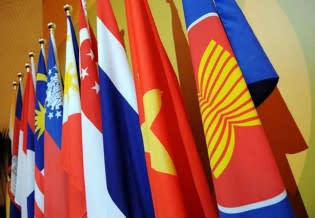ASEAN Economic Community is Coming, What Does it Mean for Asian Tech Startups?

Credit: nationmultimedia.com
“Do Indonesian startups have what it takes to face off against foreign companies?” I have stumbled on that question for some time now while conversing with a few startup players here. “Can Indonesian startups be the kings in their home turf? Even better, can they be the kings in other countries as well?” While there’s very few startups here thinking about expanding just yet, they might need to start doing so as the ASEAN Economic Community (AEC) draws even closer. What is AEC you ask? It’s basically an agreement which lets businesses in ASEAN countries expand much easier inside the region. That can mean an opportunity for your startup to expand, or threatened because other companies can come into your turf and fight you.
AEC will come into effect on December 31st 2015, to get a better grasp of what will happen when that time comes, I spoke with Chris Kanter, the vice chairman of Indonesian chamber of commerce and industry (KADIN Indonesia). Representing the local businesses, KADIN Indonesia helps the Indonesian government oversee and handle the AEC preparation as well as the discussion with the other country representatives. Chris told me that while the ASEAN Free Trade Agreement (AFTA) regulates goods within the region, AEC regulates people, which include services and manpower.
When asked about what kind of regulation that will be changed by AEC, Chris explains that AEC will basically let ASEAN members conduct businesses a lot easier inside the region. That will include easier requirements to receive business permits and extended duration of stay for ASEAN foreigners.
He admits that the Indonesian government must be able to help, facilitate, and even give incentives to local startups as to help them get ready for AEC. While it is being done as we speak, it is still far from enough, he said. Chris mentioned about how the government still needs to build a lot of infrastructure like free wifi and faster internet speed here.
Chris encourages tech startups to prepare as soon as possible for the upcoming AEC. “Technology enables businesses to operate everywhere, don’t just be defensive.” Indonesian startups shouldn’t only defend their turf, but also attack other areas too, said Chris.
As one of the biggest hindrances for people to expand is the huge amount of capital 1 needed, you can expect the cost and the paperwork hassle to be reduced significantly for ASEAN members. With both AEC and AFTA enacted - meaning that it’ll be cheaper to export products and easier to receive payments - businesses like e-commerce should embrace this opportunity wholeheartedly.
Of course, everything that was spoken here is also applicable to startup players in the other nine ASEAN countries like Singapore, Malaysia, Vietnam, and the Philippines. What do you think, folks? Do you think tech startups in ASEAN will be busy expanding and attacking new markets, or would they still be too busy (or too poor) tapping into their own local markets?
( See also: ASEAN Economic Community Factbook (PDF file))
The minimum required investment for a foreign-owned company in Indonesia is US$100,000. Unlike representative offices, foreign-owned companies can undertake business transactions and receive sales payments.
The post ASEAN Economic Community is Coming, What Does it Mean for Asian Tech Startups? appeared first on Tech in Asia.

 Yahoo Finance
Yahoo Finance 
